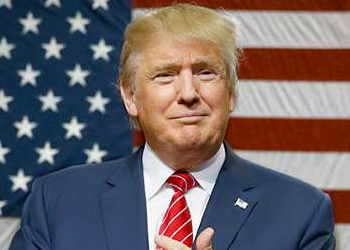In an annual designation of major drug trafficking and producing nations, US President Donald Trump broke with decades of precedent by calling out the anti-narcotics efforts of Colombia, potentially complicating cooperation with one of the United States’ closest anti-drug allies in Latin America.
Trump delivered a memorandum to the Secretary of State on September 13 that said his administration had “seriously considered designating Colombia as a country that has failed demonstrably to adhere to its obligations under international counternarcotics agreements,” citing the “extraordinary growth of coca cultivation and cocaine production” seen in Colombia in recent years.
Trump decided not to “decertify” Colombia’s counternarcotics efforts “because the Colombian National Police and Armed Forces are close law enforcement and security partners of the United States in the Western Hemisphere, they are improving interdiction efforts, and have restarted some eradication that they had significantly curtailed beginning in 2013.”
“I will, however, keep this designation … as an option, and expect Colombia to make significant progress in reducing coca cultivation and production of cocaine,” the president wrote in the memo.
Colombian President Juan Manuel Santos responded to Trump’s statements by saying that “Colombia is the country that has put the most blood into the fight against drugs,” El Espectador reported.
SEE ALSO: Coverage of Drug Policy
As was the case in past years, Bolivia and Venezuela were the only countries designated as major trafficking or producing nations that were determined to have “failed demonstrably” to adhere to their anti-drug obligations.
As usual, Latin America and the Caribbean dominated the list; 17 of the 22 countries named are located in the region.
InSight Crime Analysis
The threat to decertify Colombia comes against the backdrop of heightened tensions between the US and Colombian governments over the effects of the latter’s historic 2016 peace agreement signed with the Revolutionary Armed Forces of Colombia (Fuerzas Armadas Revolucionarias de Colombia – FARC). And the statements by the US president could prove to be an obstacle to cooperation with Colombia on counternarcotics issues.
“A slap at an ally trying to deal [with] the problem. Damage to closest bilateral relationship in hemisphere. Huge mistake,” tweeted Adam Isacson, the senior associate for defense oversight at the Washington Office on Latin America think tank.
Colombia is indeed producing more cocaine than ever before, but the notion that the government is not doing enough to combat the drug trade lacks supporting evidence. Not only has a peace agreement been achieved with the FARC — the single most important players in the global drug trade — but Colombia’s Urabeños, the country’s largest organized crime threat, have also recently offered to surrender after authorities delivered some serious blows to the organization.
SEE ALSO: Colombia News and Profiles
Trump has made similarly alienating public comments about authorities in Mexico, another crucial partner of the United States in the fight against the drug trade in Latin America. The president once tweeted that Mexico’s “weak” efforts to help secure the US border had been of “little help,” and he has routinely threatened to force Mexico to pay for the construction of a wall along the border.
Comments like these risk disrupting cooperation between the United States and its most important counternarcotics partners, and could make it difficult for the United States to tackle a domestic drug abuse epidemic that is fueling criminal violence throughout the region.

